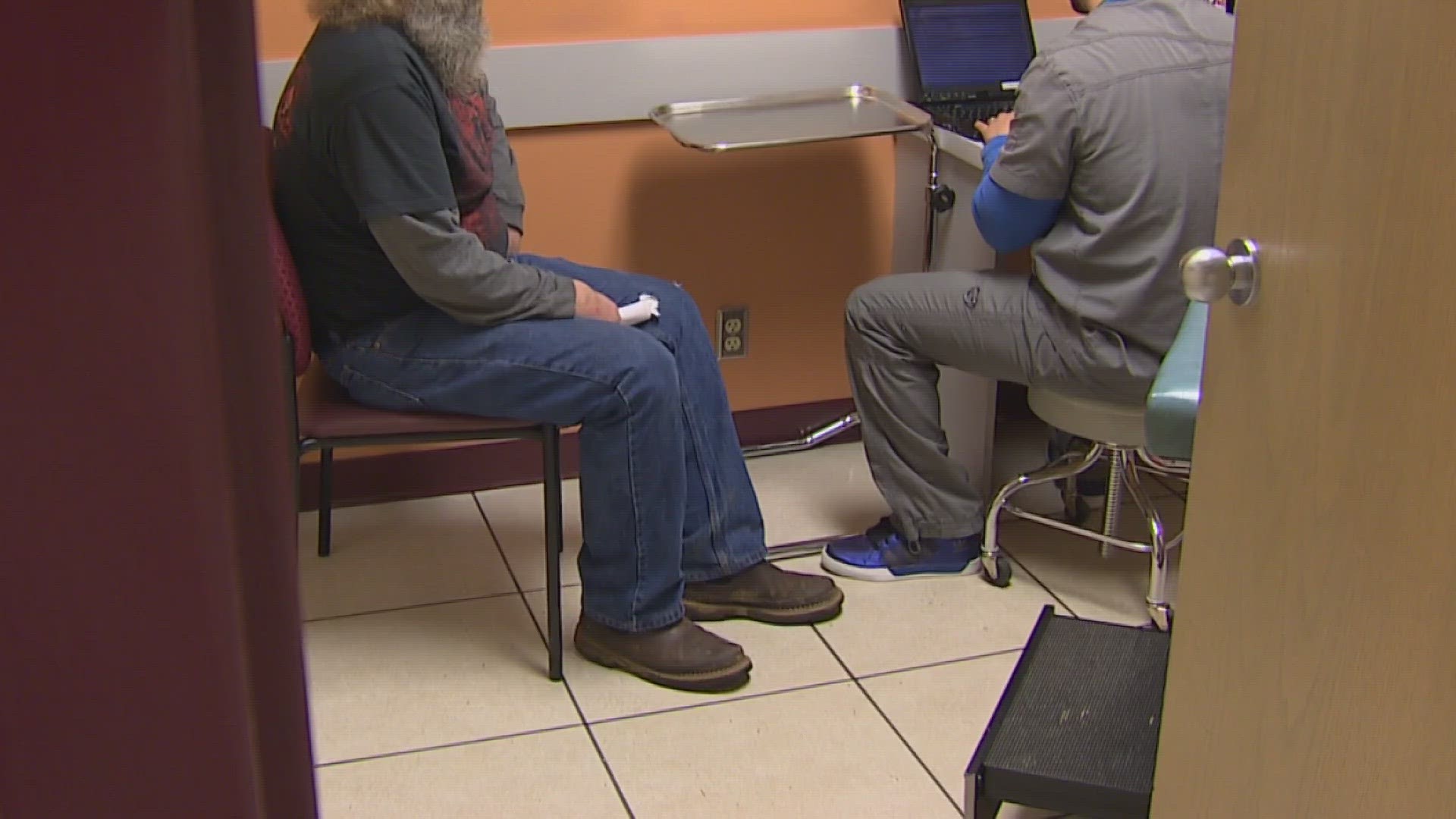OLYMPIA, Wash. — On Tuesday the Senate Labor and Commerce Committee heard testimony from injured workers pushing for the right to record state-mandated medical exams.
When workers in the state of Washington become injured on the job, the Washington State Department of Labor and Industries (L&I) typically orders the worker to undergo an exam by a state-paid doctor, in what are known as Independent Medical Exams (IMEs).
But for years, workers and their attorneys have complained the exams are unfair, lack transparency, and are used to cut off worker compensation benefits. Allowing recordings, according to those in favor of House Bill 1068, sponsored by Rep. Dan Bronoske (D-Lakewood), would level the playing field, and would eliminate discrepancies about what actually happened during exams.
The bill states that injured workers would have the “right to record the audio, video, or both,” and that the worker would be “responsible for paying for the costs of recording.” The bill also affords the injured worker the right to “have one person…to be present to observe (and record) all examinations.”
Currently, by statute, such recordings are not allowed.
Robert Canfield, of Battleground, Wash., traveled to Olympia to testify before the committee about the workplace back injury he suffered in 2009 while moving heavy equipment to clean up after a fire. He said the accident was traumatic, as well as the way he was treated by state-hired doctors during IMEs. Canfield said he believed the exams were meant to discredit him and cut off his benefits.
“In the paperwork (the doctor) said ‘Mr. Canfield is a liar. There’s nothing wrong with him,’” said Canfield, age 63. “There was nothing there to protect me in (the exams.) It’s my word against his.”
Last year the KING 5 Investigators exposed how a state-paid psychiatrist allegedly sexually harassed injured workers during IMEs. At least 14 complaints were issued to L&I over more than a decade about the practices of Dr. Douglas Robinson of Seattle, according to state records. Injured workers and their attorneys accused Robinson of being “unprofessional,” and asking “intrusive questions,” such as “what is your favorite sexual position?”
Cheryl Riley of Inchelium, Wash., near Spokane, was injured with a severe concussion while working at Washington State University in 2018. She was sent to Dr. Robinson to ascertain if the accident had caused PTSD. But Riley, age 71, said he questioned her about sexual topics that didn’t have anything to do with a concussion or a workplace injury.
“He asked, ‘When was the last time you had sexual relations?’" said Riley. “So I said, ‘Well it’s been a long time. I’ve been divorced for a lot of years.’ And he looked at me again, really hard and he said: ‘When was the last time you had sexual relations with someone?’ And I got scared. It was like he gave me PTSD all over again.”
Without a recording, it was his word against Riley’s and others who filed complaints. Dr. Robinson denied ever asking patients about their sex lives. He was never disciplined by L&I.
“He denied everything. He denied that he ever asked me those questions and of course, I couldn’t tape anything because it says on the (state form) that you’re not allowed to,” Riley said.
Edmonds-based attorney Bill Hochberg testified this case is proof that the proposed legislation is needed.
“It is a prime example. Without it, examiners like Dr. Robinson are able to fudge, tell things to injured workers like ‘Yes, we’re going to support your claim,’ and then do just the opposite when the report comes out. That is unfair to injured workers and they should not be played like that,” Hochberg said.
Opponents of the bill included representatives from the Washington Retail Association, the Washington Hospitality Association, and the Washington Self-Insurers Association. They argued recordings of exams would be in conflict with current law that disallows recordings. They also said recordings could infringe on people’s privacy and could end up on social media platforms such as YouTube and Instagram.
A psychologist testified the presence of a friend or family member recording with a cell phone would interfere with exams and inhibit the workers’ ability to speak about embarrassing or extremely private issues.
“Workers are not going to be willing to discuss their most sensitive issues in the presence of a recording or in the presence of a friend or family member (attending an exam),” said Seattle-based psychologist Dr. Wendy Marlowe.
Canfield, the injured worker who eventually was found by the state to be permanently disabled, testified one of his IMEs resulted in further injury. He testified that in 2017, a state-hired chiropractor broke his hip during an exam, but the doctor denied any culpability.
“I heard it pop so I knew something was wrong. I screamed out. (The doctor) even wrote in his report that I screamed but he didn’t know why. If there would have been a camera there, everybody would know why,” said Canfield.
The bill has already passed the House and now rests with the Senate Labor and Commerce Committee. The members have until March 29 to vote on the initiative.
A survey conducted by Washington state trial lawyers shows recording IMEs is allowed in every state in the country except two: Michigan and Washington.
Watch: KING 5's Investigations playlist

